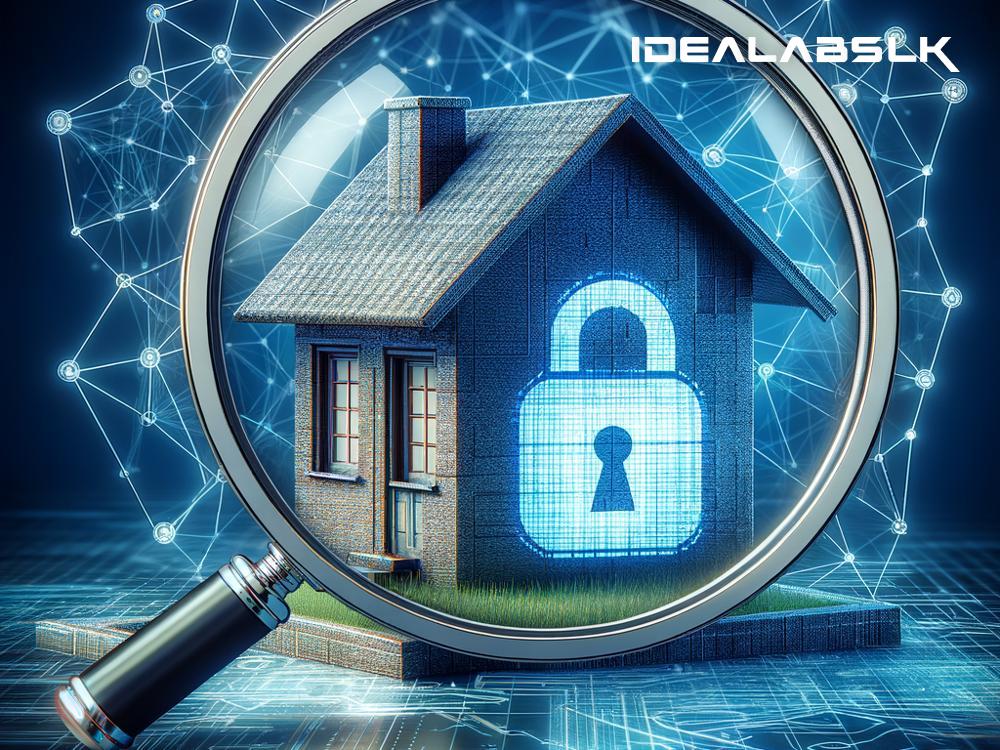Unlocking a New Era of Mortgage Security with Blockchain
In the realm of real estate, the mortgage process is often seen as a labyrinth of paperwork, red tape, and labyrinthine procedures that can be overwhelming for both buyers and sellers. However, a revolutionary technology is poised to streamline this convoluted process: blockchain. This groundbreaking technology, best known for powering cryptocurrencies like Bitcoin, holds the potential to significantly enhance mortgage security in the real estate sector. Let’s break down this complex technology into simple English and uncover how it can transform the real estate mortgage landscape.
What is Blockchain?
Imagine a digital ledger that is accessible to multiple people but cannot be tampered with or altered once an entry is made. This ledger is distributed across a network, ensuring that every participant has a copy of the entire ledger, updating in real-time. This creates an unprecedented level of transparency and security, making it nearly impossible for any false transactions or forgeries to occur unnoticed.
Why Real Estate Mortgage?
The current mortgage process is fraught with inefficiencies. From the initial application to the final closing, there are countless steps involving paperwork, verification, and numerous parties, including banks, real estate agents, and lawyers. This not only makes the process time-consuming and expensive but also leaves room for errors and fraud. Blockchain’s inherent features can address these issues head-on, promising a future where mortgage transactions are smoother, quicker, and safer.
Enhanced Security
At its core, blockchain provides a robust layer of security that is immensely beneficial for real estate transactions. Since each transaction, or “block”, is linked to the previous one and recorded across a network of computers, altering any piece of information would require changing every single block across all copies of the ledger. This is practically impossible, making fraud and unauthorized alterations a thing of the past.
Transparency and Trust
Blockchain introduces an unmatched level of transparency to the mortgage process. Every transaction is recorded on the blockchain ledger with a timestamp and is visible to all parties involved. This not only reduces the chances of disputes but also builds trust among parties, as there is a clear, immutable record of every agreement and transaction.
Streamlining Processes
One of the most exciting advantages of integrating blockchain into real estate mortgages is the potential for speeding up the entire process. Smart contracts, self-executing contracts with the terms of the agreement directly written into code, can automate tasks like property and title verification, payment processing, and the transfer of deeds. This means that what used to take weeks or even months could be completed in a matter of days or hours, significantly reducing costs and improving efficiency.
The Road Ahead
While the promise of blockchain in revolutionizing real estate mortgages is immense, there are hurdles to overcome. The technology is still in its infancy, with issues like regulatory acceptance, interoperability between different blockchain systems, and the digital divide among users needing attention. However, the potential benefits far outweigh these initial challenges.
Several startups and established companies in the real estate sector are already experimenting with blockchain technology. Some are creating platforms that could allow buyers, sellers, and financiers to conduct transactions securely and transparently. Others are developing systems for recording property titles and histories on the blockchain, providing undeniable proof of ownership and streamlining the title search process.
In Conclusion
Blockchain technology has the potential to transform the real estate mortgage process as we know it, making it more secure, transparent, and efficient. By automating the verification and transfer processes, reducing fraud, and cutting down on time and costs, blockchain could very well usher in a new era of mortgage security. As the technology matures and more players in the real estate sector adopt it, we could see a significant shift in how property transactions are conducted. The journey towards a blockchain-powered real estate mortgage system may be at its beginning, but the destination promises a more secure and efficient process for all involved.

